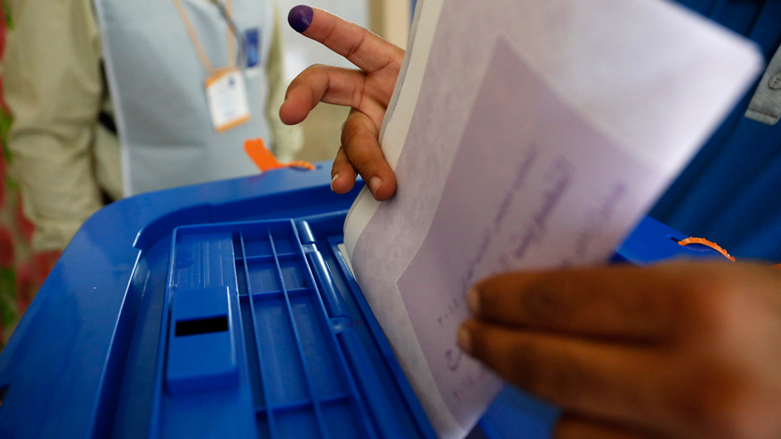6986 candidates certified for upcoming Iraqi election; 96 barred from running

ERBIL, Kurdistan Region (Kurdistan 24) - Iraq's Independent High Electoral Commission (IHEC) has announced that 6986 candidates have been certified to run in next month's national parliamentary elections.
Both Iraqi Prime Minister Haidar al-Abadi and his predecessor, Nuri al-Maliki, are listed as candidates.
The voting will be held across the country on May 12, including the four provinces of the Kurdistan Region, and will be the fourth national election since the 2003 fall of the previous regime. Candidates will compete for 329 seats in Baghdad's parliament.
IHEC said in a statement issued Thursday night that 4972 of the candidates were male, 2014 were female, and all had been signed off by the Defense, Interior, Justice, and Higher Education Ministries, as well as a controversial government body that has long been claimed by critics to be guided by corruption and sectarianism.
"96 candidates were dismissed," read the statement, "after the procedures of Accountability and Justice.”
The Accountability and Justice Commission was established in 2008 to reform the de-Baathification process, wherein those considered to have had too great a connection to the outlawed Baath Party of Saddam Hussein are disqualified from holding elected office and many government jobs.
Its rulings, accepted by IHEC, have barred hundreds of candidates from running in past elections, but are based on an oft-touted database of "evidence" about candidates that has never been made public. Charges have often made that the body is used as a tool to extract payments in secret from candidates hoping to run, as well as to disproportionally ban Sunni would-be politicians.
Sunni leaders have also criticized plans to go ahead with the election in May while at least 1.6 million Sunnis, more than half of all displaced Iraqis, are unable to return to their communities, which they say will also unfairly reduce the percentage of votes it will be possible for them to get.
Kurdish officials, as well as Sunnis, have also decried a term increasingly used by many Iraqi politicians when speaking of the upcoming election. “Majority rule,” they say, is a thinly-veiled euphemism for "Shia rule," as Iraq is one of the few countries with a Shia Muslim majority.
In Iraq's last election, held in April 2014, the State of Law Alliance of former Prime Minister Nuri al-Maliki won a majority of votes but fell short of an absolute majority, which resulted in Haider al-Abadi taking the nation's top political position.
